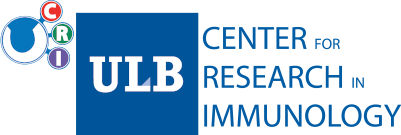Description of the research topics
In the last decade, immunotherapy has revolutionized the care of cancer patients. However, some types of cancer respond very poorly to these approaches and others develop resistance during treatment. While the presence of cytotoxic T lymphocytes infiltrating the tumor is a good prognostic factor (these immune cells are responsible for the recognition and destruction of tumor cells), a high density of macrophages is generally unfavorable.Macrophages that reside in the different tissues of the body play the role of sentinels as they detect and eliminate invading microbial pathogens (viruses, bacteria, etc.). They are also involved in wound healing processes and play a critical role in metabolic functions (e.g. Iron or Lipids). In the context of cancer, macrophages are often exploited by tumor cells so that they participate to their metabolic needs, for example by promoting angiogenesis (the formation of new blood vessels). Furthermore, they exert immunosuppressive functions, preventing the response to treatments and in particular to immunotherapy. Understanding how and why macrophages behave in this way is therefore an important research challenge in the field of cancer.
Researchers have long been confronted with major difficulties: On the one hand, the macrophages of the tumor microenvironment form very heterogeneous and plastic populations, limiting the extrapolation of data generated from cell culture (in vitro approaches). On the other hand, there are important differences between human and murine macrophages. Thus, many phenomena observable in preclinical models in mice (in vivo approaches) cannot be directly transposed to humans. It is possible to work directly on samples from human tumors, but this is limited to observational and descriptive studies.
To meet this challenge, the laboratory has recently set up “humanized” mouse models. These mice express human genes coding for the growth factors that are required for the development of immune cells. This approach allows to create a functional immune system when these mice are implanted with human stem cells. Much closer to clinical reality, these models offer fascinating research perspectives in immuno-oncology. By recapitulating a human tumor microenvironment, this innovative approach will allow us to study the function of human macrophages as well as their interactions with tumor and other immune cells. We will thus be able to identify and validate clinically transposable therapeutic targets in humans and evaluate the efficacy of potential candidates. To understand the heterogeneity of these complex cell populations, we will use molecular approaches on single cells, a methodology that is particularly useful in answering the questions that are raised. Access to clinical samples will also allow us to validate the relevance of these targets in human tumors. Our goal is to understand the biology of these cells and to reprogram them to promote anti-tumor responses.
